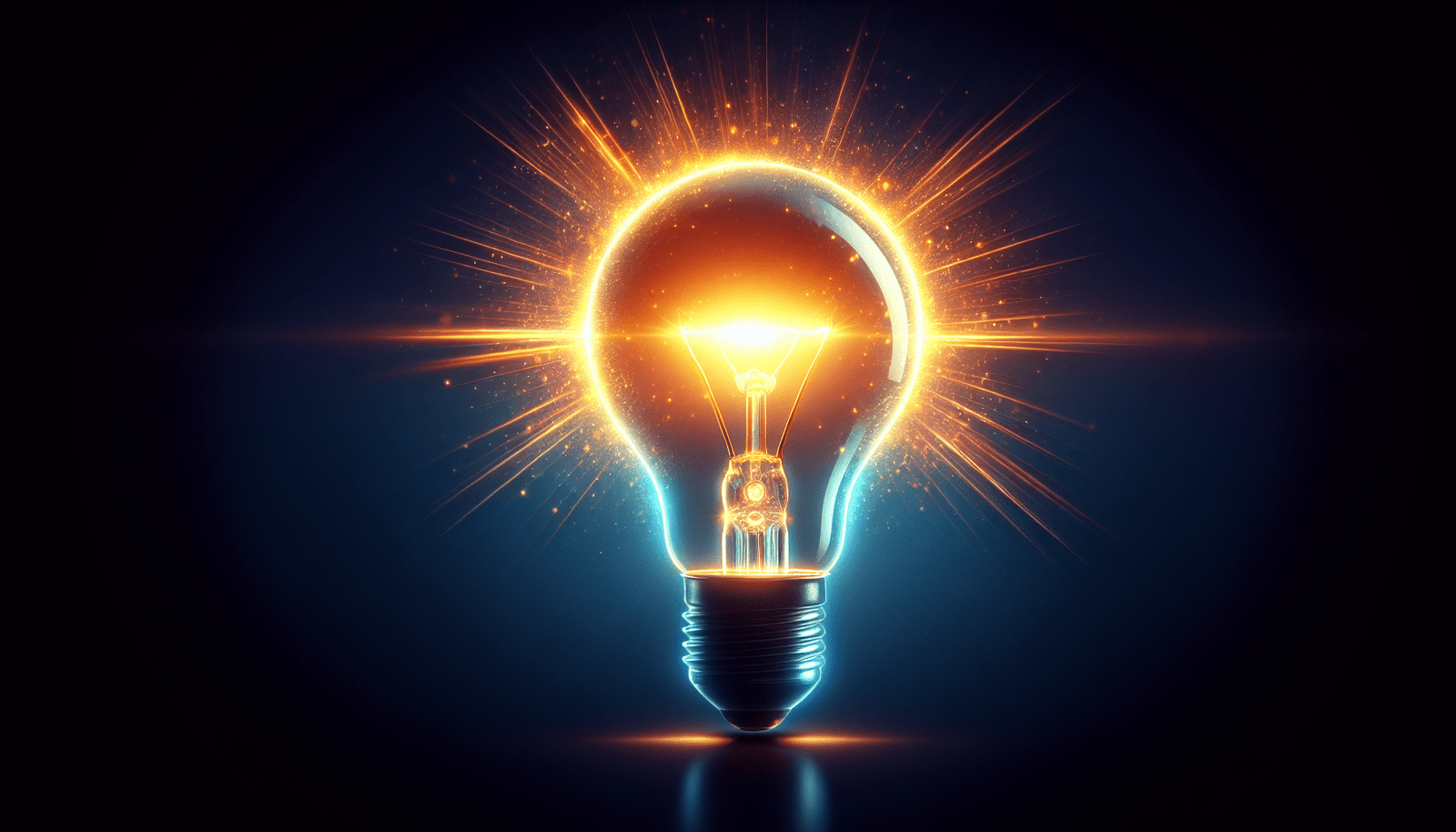Did you know that your mental health has a direct impact on your energy levels? It might surprise you, but your emotional well-being plays a crucial role in determining your overall energy and motivation. When you are struggling with mental health issues such as stress, anxiety, or depression, it can drain your energy and leave you feeling exhausted. In this article, we will explore the fascinating connection between mental health and energy levels, and discover some strategies to boost your energy and improve your overall well-being. Get ready to unlock the secrets to a happier, more energized life!
Stress and Energy Levels
The impact of stress on energy levels
Stress is a common experience in our daily lives, and it can have a significant impact on our energy levels. When you are stressed, your body goes into a heightened state of arousal, releasing stress hormones such as cortisol and adrenaline. While these hormones can be helpful in short bursts, chronic stress can lead to exhaustion and depleted energy levels. The constant activation of the body’s stress response can drain both physical and mental energy, leaving you feeling tired and fatigued.
Physical symptoms of stress that affect energy levels
Stress can manifest in various physical symptoms that directly impact your energy levels. You may experience muscle tension, headaches, or even stomachaches. These physical symptoms can be draining and make it challenging to maintain high levels of energy throughout the day. Additionally, stress can disrupt sleep patterns, leading to poor-quality sleep or insomnia, further exacerbating fatigue and decreasing energy levels.
Psychological symptoms of stress that affect energy levels
In addition to the physical symptoms, stress can also have psychological impacts that influence your energy levels. Persistent worry, anxiety, and racing thoughts can be mentally exhausting, consuming a significant amount of your mental energy. Furthermore, stress tends to impair concentration and memory, making it difficult to focus and stay alert. These psychological symptoms can leave you feeling mentally drained and emotionally exhausted, contributing to decreased energy levels.
How to manage and reduce stress to improve energy levels
Managing and reducing stress is crucial for improving energy levels. It’s essential to identify and address the sources of stress in your life. You can start by implementing stress management techniques such as deep breathing exercises, mindfulness meditation, or engaging in enjoyable activities that help you relax. Additionally, prioritizing self-care, getting enough sleep, maintaining a healthy diet, and seeking support from friends, family, or a therapist can all be beneficial strategies for managing and reducing stress, ultimately enhancing your energy levels.
Anxiety and Energy Levels
The connection between anxiety and energy levels
Anxiety, like stress, can significantly impact energy levels. When you experience anxiety, your body goes into a state of heightened arousal, leading to increased heart rate, rapid breathing, and tense muscles. These physical responses require energy, which can leave you feeling drained and fatigued. Additionally, anxiety often leads to difficulty falling asleep or staying asleep, causing sleep disturbances that further diminish energy levels.
Physical symptoms of anxiety that affect energy levels
Anxiety can manifest in various physical symptoms that directly affect energy levels. You may experience restlessness, muscle tension, or an increased heart rate. These physical manifestations of anxiety not only deplete energy but can also make it challenging to relax or engage in daily activities without feeling drained. Furthermore, anxiety-related digestive issues, such as stomachaches or nausea, can also contribute to decreased energy levels.
Psychological symptoms of anxiety that affect energy levels
Anxiety can also have significant psychological impacts on your energy levels. Constant worry, racing thoughts, and an overactive mind can consume a substantial amount of mental energy. The continuous anticipation of potential threats or negative outcomes can be mentally exhausting, leaving you feeling mentally fatigued and emotionally drained. Anxiety can also impair concentration and focus, making it challenging to sustain mental energy throughout the day.
Strategies to manage anxiety and boost energy levels
To manage anxiety and boost energy levels, it is essential to implement effective coping strategies. Regular exercise has been shown to reduce anxiety and enhance overall well-being. Engaging in activities such as yoga, meditation, or deep breathing exercises can also help calm the mind and decrease anxiety symptoms. Creating a healthy sleep routine, practicing good sleep hygiene, and seeking therapy or counseling can also be beneficial strategies for managing anxiety and improving energy levels.

Depression and Energy Levels
The correlation between depression and energy levels
Depression is often associated with low energy levels. People who are experiencing depression often feel a persistent sense of fatigue and lack of energy, regardless of how much they sleep or rest. This lack of energy can make it challenging to engage in daily activities and can greatly impact overall motivation and productivity.
Physical symptoms of depression that affect energy levels
Depression can manifest in various physical symptoms that contribute to decreased energy levels. People with depression may experience constant fatigue, muscle weakness, or a sense of heaviness in their body. These physical symptoms can make it feel incredibly difficult to carry out everyday tasks or even get out of bed, leading to a significant decrease in energy levels.
Psychological symptoms of depression that affect energy levels
Beyond physical symptoms, depression also has profound psychological effects that influence energy levels. Feelings of sadness, apathy, and hopelessness take up a substantial amount of mental energy, leaving little room for motivation and enthusiasm. Depressive thoughts and negative thinking patterns can consume mental energy, making it challenging to find the motivation or desire to engage in activities that may typically bring joy.
Ways to address depression and increase energy levels
Addressing depression and increasing energy levels often requires a holistic approach. It’s essential to seek professional help from a therapist or psychiatrist who can provide guidance and create a treatment plan tailored to your needs. Treatment options may include therapy, medication, or a combination of both. Additionally, adopting a healthy lifestyle that incorporates regular exercise, a balanced diet, adequate sleep, and engaging in enjoyable activities can all have a positive impact on energy levels and overall mental well-being.
Bipolar Disorder and Energy Levels
The impact of bipolar disorder on energy levels
Bipolar disorder is a mental health condition characterized by extreme mood swings. These mood swings can significantly impact energy levels and overall functioning. Bipolar disorder consists of two main phases: manic episodes and depressive episodes, each associated with distinct energy levels.
Manic episodes and high energy levels
During manic episodes, individuals with bipolar disorder experience an intense burst of energy, often accompanied by racing thoughts, increased goal-directed activity, and decreased need for sleep. While initially feeling energized and productive, these episodes can quickly become exhausting and disrupt daily life. The heightened energy levels during manic episodes can lead to impulsive decision-making and may contribute to sleep deprivation.
Depressive episodes and low energy levels
In contrast to manic episodes, depressive episodes in bipolar disorder are characterized by low energy levels and persistent feelings of sadness and despair. Individuals experiencing a depressive episode often struggle with exhaustion, lack of motivation, and difficulty initiating or completing tasks. Depression in bipolar disorder can be severe and debilitating, significantly impacting energy levels and overall functioning.
Management techniques for maintaining energy levels with bipolar disorder
Maintaining energy levels and managing bipolar disorder often requires a combination of medication and therapy. Collaborating closely with healthcare professionals to stabilize mood and manage symptoms is essential. Self-monitoring and tracking mood changes can help identify triggers and implement coping strategies. Additionally, creating a structured routine, prioritizing sleep, engaging in stress-reducing activities, and seeking support from loved ones or support groups can all be valuable in managing bipolar disorder and maintaining energy levels.

Sleep and Energy Levels
The importance of sleep for energy levels
Sleep plays a vital role in restoring and replenishing both physical and mental energy levels. It is during sleep that the body repairs itself, regulates hormones, and consolidates memories. Sufficient and restful sleep is essential in promoting optimal energy levels throughout the day.
Effects of sleep deprivation on mental health and energy levels
Lack of sleep or sleep deprivation can significantly impact mental health and energy levels. When you don’t get enough sleep, you may experience difficulties with concentration, memory, and problem-solving. Sleep deprivation can also amplify feelings of irritability, moodiness, and fatigue, leading to a decrease in overall energy levels.
Creating healthy sleep habits to improve energy levels
To improve energy levels, it’s important to establish healthy sleep habits, also known as good sleep hygiene. This includes maintaining a consistent sleep schedule, creating a relaxing sleep environment, avoiding stimulating activities or screens before bed, and practicing relaxation techniques, such as deep breathing or meditation, to help prepare both the mind and body for sleep. Prioritizing sleep and ensuring you get the recommended amount of sleep for your age can lead to improved energy levels and overall well-being.
Addressing sleep disorders that impact energy levels
For some individuals, sleep disorders may contribute to decreased energy levels. Conditions such as insomnia, sleep apnea, or restless leg syndrome can disrupt sleep quality and quantity. Seeking medical evaluation and treatment for any underlying sleep disorders is crucial in addressing the root cause of decreased energy levels. Treatments may include therapy, medication, lifestyle changes, or a combination tailored to your specific sleep disorder.
Exercise and Energy Levels
The connection between physical activity and energy levels
Regular physical activity has been shown to have numerous benefits for mental health and energy levels. Engaging in exercise increases blood flow and oxygen to the brain, promoting alertness and improving overall cognitive function. Additionally, exercise stimulates the release of endorphins, which are neurotransmitters responsible for boosting mood and energy levels.
How exercise boosts mental health and energy levels
Exercise not only increases blood flow and releases endorphins but also helps reduce levels of stress hormones such as cortisol. Physical activity provides a healthy outlet for pent-up energy and tension, allowing for better sleep and relaxation. By improving sleep quality, reducing stress, and boosting mood, exercise plays a crucial role in enhancing mental well-being and sustaining higher energy levels.
Types of exercises that promote energy levels
Engaging in a variety of physical activities can help promote optimal energy levels. Aerobic exercises, such as jogging, swimming, or cycling, increase heart rate and stimulate the release of endorphins, boosting energy levels. Strength training exercises, like weightlifting or yoga, can also help increase energy by improving muscle tone and overall fitness. Finding activities that you enjoy and incorporating them into your routine can make exercise more enjoyable, helping sustain motivation and energy levels.
Creating an exercise routine for optimal mental health and energy
To create an exercise routine that promotes optimal mental health and energy levels, it’s important to find activities that you enjoy and can easily incorporate into your daily schedule. Start by setting realistic goals and gradually increase the intensity and duration of your exercise sessions. Aim for at least 150 minutes of moderate-intensity aerobic exercise per week, or 75 minutes of vigorous-intensity exercise, along with strength training exercises twice a week. Remember to listen to your body, rest when needed, and seek professional guidance if necessary.

Diet and Energy Levels
The impact of nutrition on mental health and energy levels
Nutrition plays a critical role in supporting mental health and energy levels. The food we eat provides the building blocks for our brain chemistry, influencing mood, cognitive function, and energy production. A balanced diet consisting of nutrient-dense foods is essential for maintaining optimal mental well-being and sustained energy levels throughout the day.
Foods that increase energy levels and support mental well-being
Certain foods can provide a natural source of energy and support overall mental well-being. Complex carbohydrates, such as whole grains, fruits, and vegetables, provide a sustained release of energy and help stabilize blood sugar levels. Healthy fats, such as those found in nuts, seeds, and fatty fish, provide essential nutrients for brain health and can contribute to improved energy levels. Additionally, foods rich in vitamins and minerals, including leafy greens, berries, and lean proteins, can support optimal mental function and enhance energy levels.
The role of hydration in energy levels and mental health
Hydration is key to maintaining optimal energy levels and mental health. Dehydration can contribute to feelings of fatigue and decreased cognitive function. It’s important to drink an adequate amount of water throughout the day to stay hydrated and support proper brain and body function. Aim to drink at least 8 cups (64 ounces) of water per day, and adjust intake based on activity levels and individual needs.
Developing healthy eating habits for improved mental health and energy
Developing healthy eating habits is essential for improved mental health and sustained energy levels. Start by focusing on consuming a variety of nutrient-dense foods, such as fruits, vegetables, whole grains, lean proteins, and healthy fats. Avoid excessive consumption of processed foods, sugary snacks, and beverages high in caffeine or added sugars, as they can lead to energy crashes and negatively impact mental well-being. It’s also important to listen to your body’s hunger and fullness cues and establish regular eating patterns to support optimal energy and digestion.
Caffeine and Energy Levels
The effects of caffeine on mental health and energy levels
Caffeine is a stimulant that can temporarily increase alertness and energy levels. It works by blocking adenosine receptors in the brain, which can make you feel more awake and less tired. While caffeine can provide a temporary energy boost, excessive consumption or reliance on caffeine can have negative effects on mental health and energy levels.
Benefits and drawbacks of consuming caffeine
Moderate consumption of caffeine can have some benefits for mental health and energy levels. It can improve alertness, concentration, and even enhance mood. However, excessive caffeine intake or consuming it later in the day can interfere with sleep and contribute to feelings of restlessness or anxiety. Additionally, caffeine withdrawal can lead to headaches, irritability, and decreased energy levels.
Alternative drinks and strategies for maintaining energy without caffeine
If you’re looking to maintain energy levels without relying on caffeine, there are plenty of alternatives to consider. Herbal teas, such as chamomile or peppermint, can provide a soothing and calming effect without the stimulating effects of caffeine. Green tea is another option that contains a moderate amount of caffeine along with beneficial antioxidants. It’s also important to stay hydrated throughout the day by drinking water or flavored infused waters to support energy levels.
Moderating caffeine intake for optimal mental health and energy
To moderate caffeine intake for optimal mental health and energy, it’s important to be mindful of how much caffeine you consume and when. Gradually reduce your caffeine intake if you find yourself relying on it excessively. Consider limiting caffeine consumption to earlier in the day to avoid interfering with sleep. Pay attention to any negative effects caffeine may have on your mental well-being and energy levels and adjust your consumption accordingly.
Medication and Energy Levels
The impact of psychiatric medications on energy levels
Psychiatric medications can have various impacts on energy levels, both positive and negative. Some medications may increase energy levels, while others may cause fatigue or drowsiness. The specific effects can vary depending on the medication and individual response.
Common side effects and how they affect energy levels
Some common side effects of psychiatric medications, such as antidepressants or antipsychotics, can include drowsiness, fatigue, or decreased motivation. These side effects can contribute to decreased energy levels and may impact daily functioning or overall productivity. However, it’s important to note that individual responses to medications can vary, and not everyone will experience the same side effects.
Collaborating with healthcare professionals to find the right medication balance
Finding the right medication balance is crucial for managing mental health and energy levels. It’s important to work closely with healthcare professionals, such as psychiatrists or primary care physicians, to monitor medication effects and adjust dosages if necessary. Regular communication and open discussions about side effects or concerns can help ensure that medication regimens are optimized to minimize adverse effects on energy levels.
Adjustments and alternatives to medication for managing mental health and energy
In some cases, adjustments to medication may be necessary to manage mental health and energy levels effectively. This may involve changing dosage, switching to a different medication, or exploring alternative treatment options. Alternative treatments, such as therapy, lifestyle changes, or complementary therapies like acupuncture or mindfulness practices, can also be beneficial in managing mental health and optimizing energy levels. It’s important to discuss any concerns or desired adjustments with your healthcare professional to find the best approach for your specific needs.
Self-Care and Energy Levels
The importance of self-care for mental health and energy levels
Self-care is essential for maintaining optimal mental health and energy levels. Taking time to prioritize your well-being can help reduce stress, enhance mood, and replenish energy reserves. Self-care involves engaging in activities that promote relaxation, joy, and overall mental and emotional well-being.
Practicing relaxation techniques to replenish energy
Incorporating relaxation techniques into your daily routine can be a powerful way to replenish energy levels. Techniques such as deep breathing exercises, progressive muscle relaxation, or mindfulness meditation can help calm the mind, reduce stress, and promote relaxation. Even taking a few moments each day to engage in deep breathing or mindfulness can have profound effects on mental well-being and energy levels.
Engaging in activities that bring joy and boost mental well-being
Engaging in activities that bring joy and boost mental well-being is an essential component of self-care. This can include hobbies, spending time with loved ones, practicing creative outlets like art or music, or simply doing things that bring you pleasure. By nourishing your soul and engaging in activities that bring you fulfillment, you replenish mental energy and restore a sense of balance and well-being.
Prioritizing self-care to maintain optimal energy levels
Making self-care a priority is crucial for maintaining optimal energy levels. Start by carving out dedicated time in your schedule for self-care activities. Set boundaries and learn to say no when needed to avoid overextending yourself. Remember that self-care is not selfish; it is a necessary investment in your mental well-being and energy levels. By prioritizing self-care, you can sustain higher levels of energy, resilience, and overall mental health.
In conclusion, mental health has a significant impact on energy levels. Stress, anxiety, depression, bipolar disorder, sleep, exercise, diet, caffeine, medication, and self-care all play a role in determining our energy levels and overall well-being. It is essential to understand the connections between mental health and energy and implement strategies to manage and improve both. By prioritizing self-care, seeking professional help when needed, and adopting healthy lifestyle habits, you can enhance mental health and maintain optimal energy levels for a more fulfilling and energized life.

